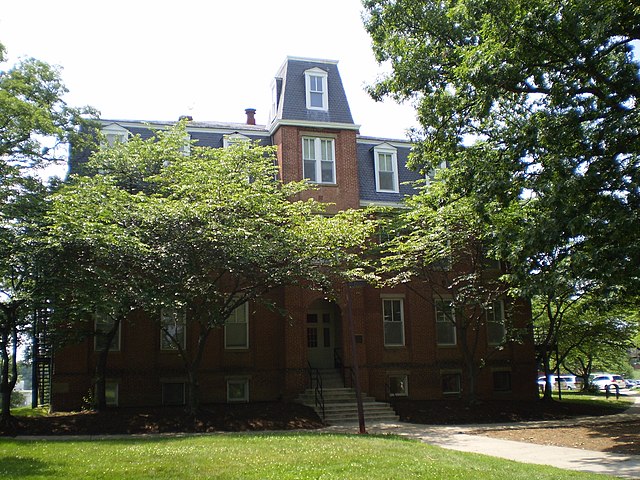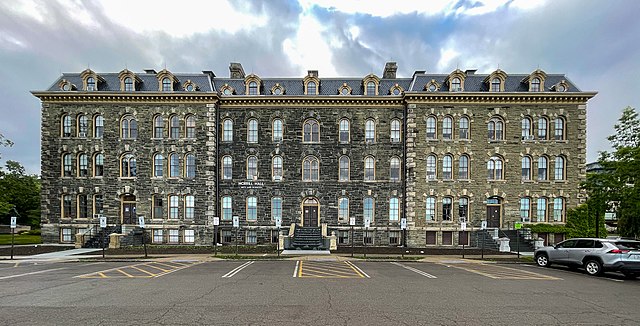Justin Smith Morrill was an American politician and entrepreneur who represented Vermont in the United States House of Representatives (1855–1867) and United States Senate (1867–1898). He is most widely remembered for the Morrill Land-Grant Acts that provided federal funding for establishing many of the United States' public colleges and universities. Originally a Whig, after that party became defunct Morrill was one of the founders of the Republican Party.
Morrill pictured between 1855 and 1865
Justin Smith Morrill (pictured between 1865 and 1880)
Morrill Hall at Iowa State University, one of several Morrill Halls at colleges created by the Morrill Act
Mausoleum of Senator Justin Smith Morrill in Strafford, Vermont
The Morrill Land-Grant Acts are United States statutes that allowed for the creation of land-grant colleges in U.S. states using the proceeds from sales of federally owned land, often obtained from Native American tribes through treaty, cession, or seizure. The Morrill Act of 1862 was enacted during the American Civil War, and the Morrill Act of 1890 expanded this model.
Justin Smith Morrill
Morrill Hall, on the campus of the University of Maryland, College Park (a land-grant university), is named for Senator Justin Morrill, in honor of the act he sponsored.
Morrill Hall, the first building of Cornell University, is named for Senator Justin Morrill, in honor of the Morrill Land-Grant act.
Beaumont Tower at Michigan State University marks the site of College Hall which is the first building in the United States to teach agricultural science.








